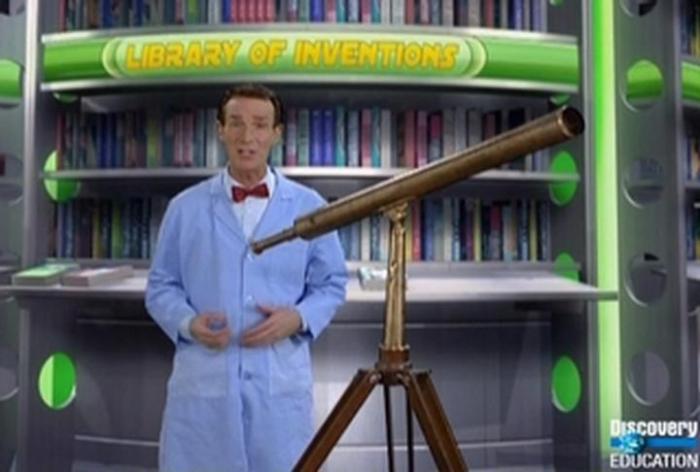Space exploration bill nye worksheet sets the stage for this enthralling narrative, offering readers a glimpse into a story that is rich in detail and brimming with originality from the outset. Delving into the fascinating world of space exploration, this worksheet provides a comprehensive overview of the history, scientific discoveries, technological advancements, economic impact, challenges, and future prospects of this captivating field.
The content of the second paragraph that provides descriptive and clear information about the topic
Historical Overview of Space Exploration

Space exploration, the exploration of celestial bodies beyond Earth’s atmosphere, has been a significant endeavor for humanity. It began with the launch of Sputnik 1, the first artificial satellite, by the Soviet Union in 1957, marking the start of the Space Race between the USSR and the United States.
Key figures in space exploration include Yuri Gagarin, the first human to orbit Earth in 1961, and Neil Armstrong, the first human to walk on the Moon in 1969. Government agencies, such as NASA in the US and Roscosmos in Russia, have played a crucial role in advancing space exploration.
Space exploration technologies have evolved significantly over time. Early rockets, such as the V-2 rocket developed by Germany during World War II, laid the foundation for modern launch vehicles. Spacecraft have become increasingly sophisticated, allowing for longer missions and more complex scientific experiments.
Scientific Discoveries from Space Exploration
Space exploration has led to numerous scientific discoveries. The Hubble Space Telescope has provided stunning images of distant galaxies, revealing the vastness and age of the universe. Missions to Mars have uncovered evidence of past water and potential for life on the Red Planet.
The discovery of exoplanets, planets outside our solar system, has revolutionized our understanding of the universe. Space exploration has also advanced our knowledge of the composition of the solar system, including the presence of water ice on Jupiter’s moon Europa and the complex atmosphere of Titan, Saturn’s largest moon.
Space exploration has fostered scientific collaborations and inspired future generations. International space stations, such as the International Space Station, have brought together scientists from around the world to conduct research and experiments in space.
Technological Advancements from Space Exploration
Space exploration has driven numerous technological advancements. Satellite communication has enabled global communication and navigation systems, such as GPS. Weather satellites provide critical data for forecasting and disaster response.
Space exploration has also led to innovations in materials science, computing, and robotics. The development of lightweight and durable materials for spacecraft has found applications in industries such as automotive and construction. Advanced computing technologies developed for space missions have revolutionized data processing and storage.
Future space exploration missions have the potential to drive further technological advancements, such as the development of artificial intelligence for autonomous spacecraft and the creation of new materials for space habitats.
Economic Impact of Space Exploration
Space exploration has significant economic benefits. It creates jobs in various industries, including aerospace, manufacturing, and research. The development of space technologies has led to new industries, such as satellite-based services and space tourism.
Space exploration can contribute to economic growth and global prosperity by stimulating innovation, creating new markets, and fostering international collaborations. Companies and organizations involved in space exploration, such as SpaceX and Blue Origin, have made significant economic impacts.
Challenges and Risks of Space Exploration, Space exploration bill nye worksheet
Space exploration presents challenges and risks. The harsh environment of space, including radiation and microgravity, poses risks to astronauts and spacecraft. The potential for accidents and emergencies during space missions is also a concern.
These challenges are being addressed through technological advancements, such as improved spacecraft design and radiation shielding. Safety protocols and emergency response plans are in place to minimize risks. Ethical considerations, such as the preservation of extraterrestrial environments and the responsible use of space resources, are also being discussed.
Future of Space Exploration
The future of space exploration is promising. Plans for future missions include crewed missions to Mars, the exploration of Jupiter’s moons, and the search for life beyond Earth. Technological breakthroughs, such as the development of reusable rockets and advanced propulsion systems, are expected to enable more ambitious space missions.
Space exploration has the potential to lead to new discoveries, advancements, and collaborations. It is an endeavor that has captured the imagination of humanity and continues to inspire us to push the boundaries of our knowledge and capabilities.
Continued investment in space exploration is crucial for the benefit of humanity. It will enable us to expand our understanding of the universe, develop new technologies, and create new economic opportunities.
FAQ: Space Exploration Bill Nye Worksheet
What is the history of space exploration?
Space exploration has a rich history, dating back to the early days of rocketry. Key milestones include the launch of Sputnik 1, the first artificial satellite, in 1957, and the Apollo 11 mission, which landed the first humans on the Moon in 1969.
What are some of the major scientific discoveries made through space exploration?
Space exploration has led to numerous scientific discoveries, including the existence of exoplanets, the composition of the solar system, and the origins and evolution of life.
What are some of the technological advancements that have resulted from space exploration?
Space exploration has driven innovation in areas such as satellite communication, GPS systems, materials science, and computing.
What are some of the challenges and risks associated with space exploration?
Space exploration is a challenging and risky endeavor, with hazards including the harsh environment of space, the potential for accidents, and the ethical considerations involved.
What is the future of space exploration?
The future of space exploration is bright, with plans for future missions and technological breakthroughs that promise to lead to new discoveries, advancements, and collaborations.

